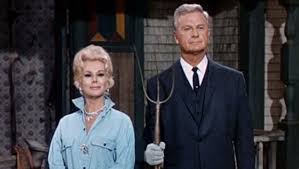A few knowledge workers decamp to rural America as they age, but cities are the key
It’s an oft-told tale: talented professionals grow weary of the stress and high cost of city-living, and decamp with their spouses, children and knowledge-based businesses to some rural hamlet. It’s a harbinger of the end of cities as we know them, because all these smart people can easily run their lives and enjoy greater elbow room and lower costs somewhere in smaller town or rural America.

The latest installment in this series is entitled “The Allure of Small Towns for Big City Freelancers: It’s harder for creative professionals to make a living in big cities. Many are looking elsewhere.” It comes from Slate‘s Rebecca Gale, who relates the tale of filmmaker Joel Levinson who moved his independent production business–responsible for the indie film “Boy Band”–from Los Angeles to Yellow Springs, Ohio (pop. 3,500).
According to the article, it’s an example of how the staggering cost of housing in large cities is leading more and more millennials to move away.
The story apparently caught a lot of people’s eyes, as it ranked as most read on Jeff Wood’s daily Overhead Wire news service (which we subscribe to, and you should, too).
So is it true? Are cities being emptied out as talented knowledge workers depart for cheaper locales?
Not so much. Statistically, smart young people are even more concentrated in cities now than they have ever been. Even though the college attainment rate of young adults continues to increase (i.e. relatively more 25 to 34 year olds have BA degrees or higher than at any time previously), these folks are more, not less likely to live in cities.
There are lots of reasons why, but a critical one has to do with what economists call “human capital formation.” If you want to find an interesting or challenging job, develop some skills and work experience, build a network of colleagues and contacts, build and burnish a reputation as a skilled and productive worker, not to mention find out what kind of work best suits your interests and aptitudes, there’s no better place to be than in a large city.
And that’s exactly what a wide range of economic literature shows: highly educated young workers earn more, and see their pay grow faster when they live in cities. They’re also more productive. So when you’re starting out, in your twenties and early thirties, you’re well advised to be in a city.
That was obviously true of filmmaker Levinson. According to Wikipedia, after attending George Washington University in 2002, he moved to Los Angeles to work as a comedy writer and film maker. He honed his skills and no doubt had more than a few lunches in Hollywood, building contacts. Joel was a big hit in producing original video content for YouTube (he bills himself as “the world’s first professional online video contest winner, for which he was profiled on the front page of the NY Times and was a guest on the Tonight show with Jay Leno.” That success in hand, Joel was in a position to think about taking that accumulated capital and moving elsewhere. And because he had some successes, he could continue to draw on a network he’d established.
Take nothing away from Levinson: He’s a creative filmmaker and writer, a successful businessman, and is genuinely original and funny. But his case, though striking, is a reminder of a couple of things. First, generating success and a reputation often requires paying your dues and building your skills and network in a big city, (in film and entertainment, that usually means Los Angeles or New York). Second, you’ve got to maintain those networks. Though Joel is in Yellow Springs, Ohio, his brother and collaborator Stephen Levinson is in Brooklyn, New York, where he’s been a writer for among other things, The Tonight Show.
As one gets older, and stops accumulating human capital at such a rapid rate, the relative advantage of being in a city may decline. That’s inevitably going to lead some people to put greater weight on space and costs than on being part of the intense buzz of an industry, like film-making. So some will leave cities for the suburbs, or in rarer cases, depart to the countryside.
But the big question is: How many?
It’s always possible to come up with a single anecdote. Indeed, that appears to be all you need to write a story like this one. This isn’t the first time than Levinson has been portrayed as the avatar of urban-to-rural emigration: His story was featured in a Newsweek article with a similar theme in 2016.
The fact that a single anecdote drives two different stories of the urban talent diaspora probably says as much about the herd-instinct of some journalists as it does about the extent of urban to rural migration. In the end, however, we ought to look closely at the details and the data. What they show is that young knowledge workers are gravitating toward urban centers, because that’s where they can quickly gain valuable skills. There’s little news in the fact that as some of these folks age that they move away.

